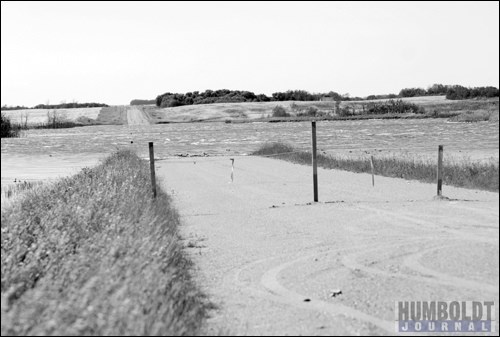For those who want to voice their opinion on what to do with agricultural drainage in the province, here's their chance.
The Water Security Agency (WSA) is launching its first-ever online consultation forum to receive input from residents on the issue.
Everyone from farmers to landowners to ranchers and even just people with an opinion can join the forum starting Sept. 1, which will run until March 31.
"We committed to developing new approaches and regulations on agricultural drainage in the 25 Year Saskatchewan Water Security Plan and this is a major step in that direction," Minister responsible for Water Security Agency Ken Cheveldayoff said in a news release.
"This online forum offers an opportunity to have a large number of people share ideas and information to help us develop the best overall policy."
The input shared by individuals will directly contribute to the development of a new drainage policy for the province.
Participants will discuss a range of topics, from drainage to water quality to downstream flooding.
"We're very encouraged that the government is looking at this," said Michael Champion, manager of industry and government relations for the Saskatchewan branch of Ducks Unlimited Canada (DUC).
There are many people in the Humboldt area alone that are sure to have an opinion on this matter.
Many local farmers, in order to increase cultivation, will drain the wetlands on their property into another body of water, adding to the hot-button issue of water levels rising in the area's numerous lakes.
According to DUC, 90 per cent of wetlands south of Humboldt have been lost due to illegal drainage.
Adding to that matter, after a lengthy investigation, the WSA concluded that illegal drainage was a major factor in the province's overflowing lakes; salty basins like Houghton were spilling over into Lenore Lake, until Environment Canada ordered the culvert that connected the two to be blocked.
Berms had been set up around lakes such as Waldsea and Deadmoose in order to slow the overflow, some having to be raised several times.
The salty spillovers caused lakeshore cabins to be ruined, crop lands destroyed and the government purchased both properties from their owners, leaving farmers and residents more than angry; acreages were cut in half.
Back in July, Environment Canada offered to contribute $4 million to the WSA to assist with the cost of monitoring the matter.
Chuck Deschamps, a resource specialist with DUC, said he hoped for the money to also go towards restructuring the agricultural drainage conundrum.
Deschamps couldn't be reached at press time but Champion is hoping "it'll shed light on the matter" as well.
"We lose 30 acres of wetlands every day," Champion said. "That's 14 CFL football fields."
Champion added the draining issue just makes flooding worse but is hopeful for the discussions that will come out of this new forum, since "water affects everyone in Saskatchewan."
Champion also pointed out the negative effects draining can have downstream, saying nitrogen and phosphorous, critical nutrients in farming, can be washed off lands.
Numerous opinions and "differing views" will dominate the discussions, Champion said, but DUC (who will have a representative join the forum on their behalf) is excited to see the outcome in this consultative approach from the government.
For more information on how to join the forum, visit the WSA's website at wsask.ca or http://agdrainage.insightrix.com.


.png;w=120;h=80;mode=crop)

